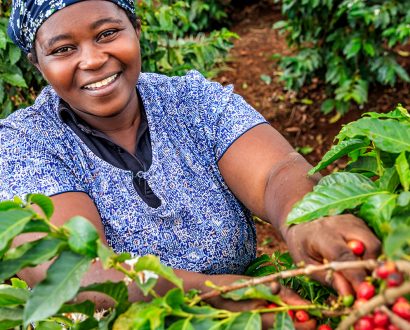How one coffee company is maximising private equity opportunity from luxury goods

Bruce Caven, the CEO of Blue Mountain Best, has something to prove. Luxury coffee prices around the world are surging, and Caven is convinced that responsible coffee growing, paired with global investment, can bring new opportunity and profit to the world’s most sought-after coffee regions.
His company, Blue Mountain Best, is positioned to become one of the largest and well-connected coffee producers and processors in Jamaica’s Blue Mountains, home to Jamaican Blue Mountain coffee. While the long-desired luxury coffee market in Jamaica has suffered from lack of training and support for coffee farmers, Caven hopes to bring new investment to the region to maximise the profitability of the country’s most well-known luxury export.
"A growing desire for gourmet coffee, along with an impatient plea from coffee traders to stabilise exports in the region, continues to drive our goals," Caven said in a recent interview. "If we can harness the global market’s desire to buy Jamaican Blue Mountain coffee while working directly with farmers to improve production and supplement long-needed resources, our profit potentials for stakeholders – in and out of Jamaica – are massive."
Jamaican Blue Mountain coffee is the crown jewel of the specialty coffee market. While Jamaica produces less than 0.1 per cent of the world’s coffee, certified Jamaican Blue Mountain beans, which retain a protected status in the region, earn the world’s highest unit value for their export. While the average global export price for Arabica coffee hovers around US$4 per kilogram, Jamaican Blue Mountain beans command an average unit price of roughly US$22–$35 for the same quantity. At market, Jamaican Blue Mountain coffee consistently retails around US$80–US$90 dollars per pound, retaining an impeccable reputation as the most sought-after coffee in the world.
Driven to innovate
Caven’s Blue Mountain Best has purchased a sizeable plot in the region and has already begun planting and establishing its estate, potentially the largest on the island. Caven describes the company – which has hired generational farmers in Jamaica to lead its production – as an innovative force in Jamaican Blue Mountain coffee.
Bringing coffee from seed to wholesale is no easy feat, but Caven says that Blue Mountain Best is offsetting costs by processing coffee from local farmers while simultaneously growing its own single estate coffee, providing new investment in the region and developing relationships with local growers.
"Using revenues from coffee processing, along with a syndicated business model that gives our partners joint venture interest in our acreage, our plan is to install a stable, reliable, and modern coffee estate that connects luxury coffee buyers to this incredible crop."
Caven is confident in Blue Mountain Best’s success because of its innovative business model for the region. Rapid development of Blue Mountain Best is fuelled by offering a portion of its acreage for syndication with investment groups, coffee traders and local stakeholders.
"We’re a well-connected and community-focused coffee grower in the region, and we’re out to transform the specialty coffee market in Jamaica while maximising the investment possibilities of this luxury product." – Bruce Caven
"With more than 10 years of community partnerships in the region, we work with small farms to develop well-paying contracts that stabilise our access to beans and improve the agricultural infrastructure of the region. While we realise revenues from processing, we will continue to develop our own acreage through our capital commitments," he said.
Caven says that a joint-investment model for the region is obvious: not only is the investment opportunity irresistible for syndicates, but the profit-saving logistics for coffee traders is significant. Moreover, the benefits for local farmers, who desperately require a fair and well-invested processor to buy their beans for export, is enormous.
"This opportunity will give enthusiastic retailers, roasters and traders a stake in production, leveraging the gourmet market’s desire for direct trade and offering downstream agents the opportunity to vertically integrate with a commercial grower," Caven said. "Through varied partnership verticals, our joint venture model will guarantee export and grow our production through self-sustaining investment."
While Blue Mountain Best is well underway in Jamaica, Caven says that the company is soon closing its final round of investment in the company. He concluded, "Private equity opportunities like this don’t come around very often, and we’re hoping our final tranche of investors are as excited as we are about the global demand for this luxury export."